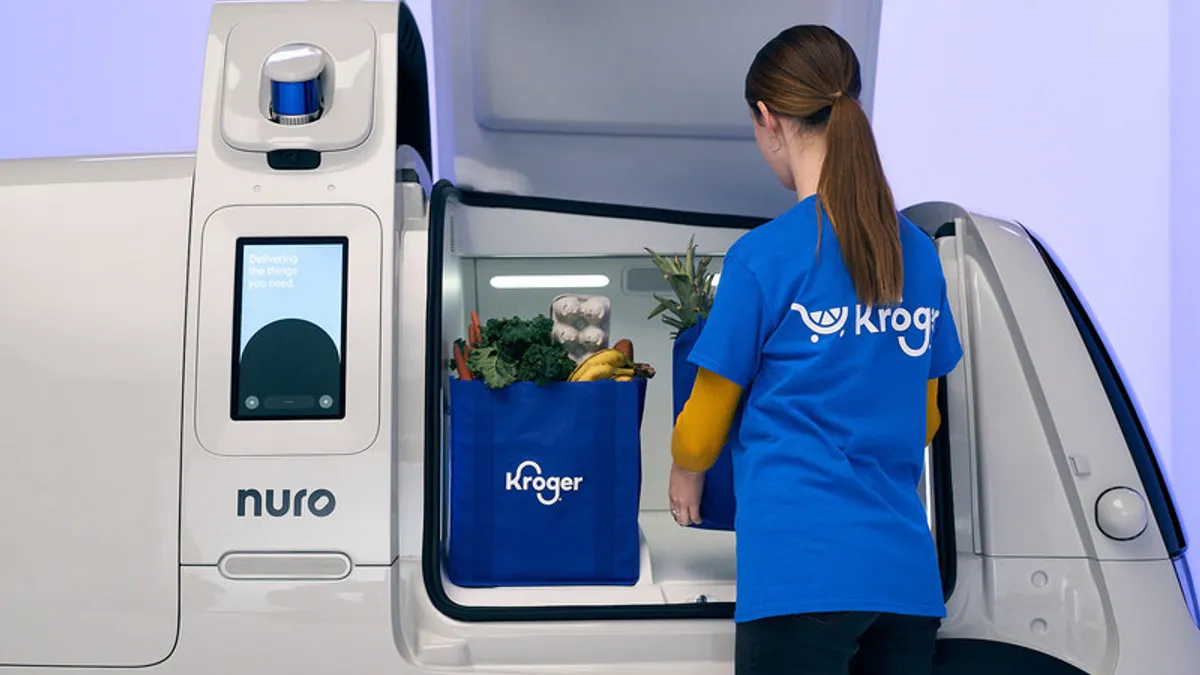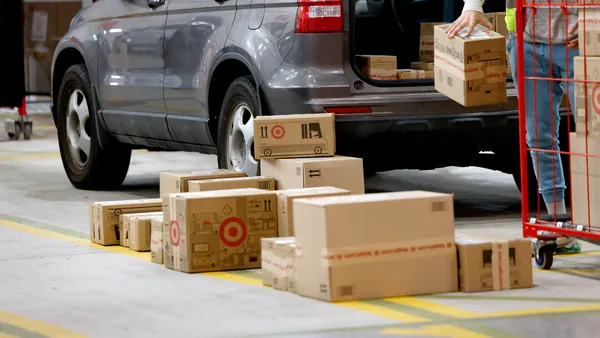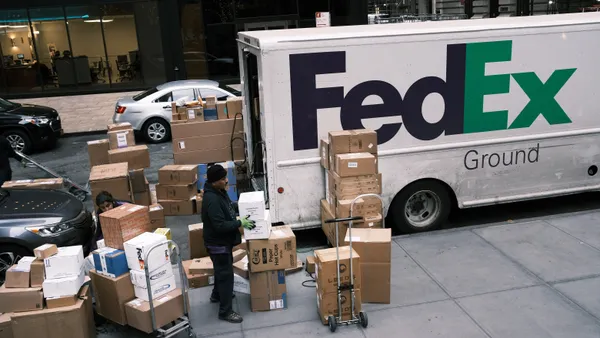Dive Brief:
- Kroger announced Wednesday it will begin making deliveries in Houston, Texas, using the third-generation autonomous vehicles from tech firm Nuro.
- The electric vehicles double the cargo volume of Nuro’s second-generation model, and have customized storage space and new temperature control features, according to the autonomous delivery company.
- This is the latest step in Kroger’s push to infuse automation into each step of the online shopping experience, thereby bringing down long-term costs and improving efficiency.
Dive Insight:
Grocers across the U.S. have been testing autonomous delivery vehicles in recent years from companies like Starship, Nuro and Waymo, with pilots ramping up during the pandemic. The vehicles promise to cut costs in last-mile delivery, which is notorious for being one of the priciest steps in getting groceries to shoppers’ doorsteps.
Steve Bishop, co-founder and managing partner with Brick Meets Click, said he expects to see more retailers launching autonomous vehicle pilots and rollouts in 2022 as availability of driverless carriers increases.
"Assuming things continue at the current rate, this means at a practical level any retailer who wants to satisfy delivery demand in their market will be able to do more easily with these vehicles," he wrote in an email. "They will provide lower costs for the retailer, and we expect to see even more innovation in how these autonomous vehicles can operate, i.e., driving on roads or sidewalks."
Nuro’s third-generation vehicle is their mass-market driverless model that the company plans to deploy at scale after five years of development. The company’s latest announcement notes that the vehicle, known simply as Nuro, will reach "millions" of consumers through services like retail and restaurant delivery.
Kroger has put itself in pole position to test and scale with the new model as it ramps up its new digital ecosystem that increasingly relies on automation — including robot-powered warehouses going up in metros across the U.S.
The grocer began piloting autonomous deliveries with Nuro in 2018 in Arizona. In 2019, Kroger shifted its testing operations to Houston, which has a growing population, numerous restaurants and retailers, and a sprawling, mostly flat topography that’s good for testing autonomous vehicles.
Kroger and Nuro have made "tens of thousands" of deliveries using Toyota Prius vehicles outfitted with autonomous driving technology and a safety driver inside, a Kroger spokesperson said. The spokesperson said the company and Nuro are still working out a timeline to begin using the new vehicles in Houston, and declined to say how many of the third-generation vehicles will be making grocery deliveries.
In addition to more space and modular storage features, the latest model has safety features like exterior airbags and multi-modal sensing that incorporates cameras, thermal cameras, radar and lidar, which together map a 360-degree view of the vehicle’s surroundings.
Nuro recently broke ground on a $40 million manufacturing and testing facility in southern Nevada where it will develop the new vehicles. Unlike many early-model autonomous delivery vehicles, Nuro’s vehicles are purpose-built for last-mile delivery. They’re smaller than most cars and don’t have human-centric features like seats or rearview mirrors.
Kroger, which recently contributed to Nuro's $600 million investment round, noted in its release Wednesday that the firm's electric vehicles also support its environmental and social impact plan to reduce emissions at the corporate level and offer more eco-friendly services to shoppers.
In addition to Kroger, Nuro has been testing autonomous delivery with 7-Eleven and pizza chain Domino's.















